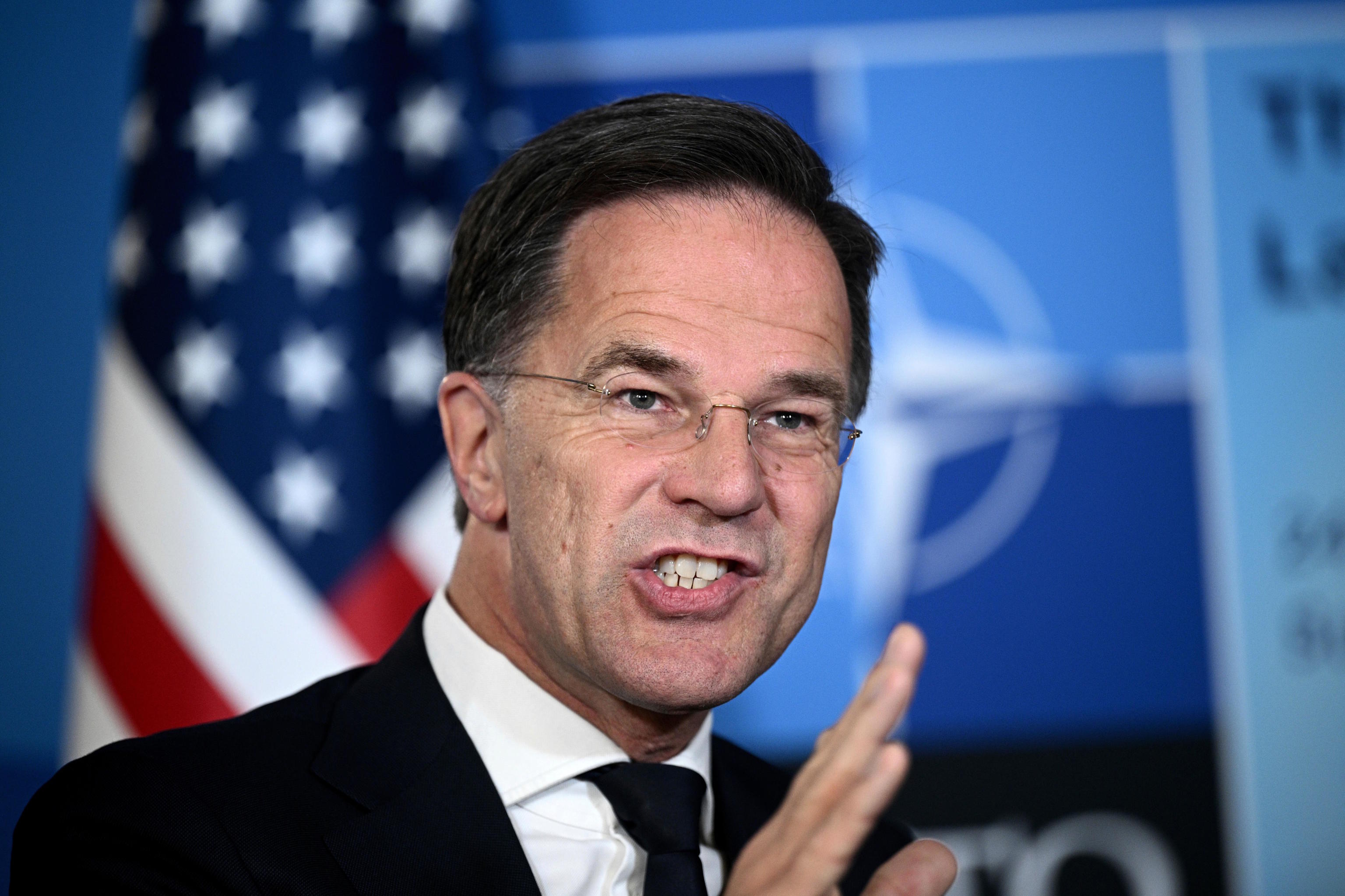Russia continues to increase its threats to Europe. This Tuesday, with just a few minutes of difference, NATO Secretary-General Mark Rutte and Commission President Ursula Von der Leyen have pointed out two new attack tools. "Secret Biological Investigations" and "its biological weapons program, which it can use against its adversaries," stated the former; the use of weather balloons on the border between Belarus and Lithuania, added the latter, who did not hesitate to classify this action as a "hybrid threat."
The Commission President, from Stockholm and after participating in the Nordic Council meeting, denounced the "provocation" that Lithuania has suffered for three consecutive nights in the form of weather balloons from Belarus, a country allied with Putin. Usually used for smuggling, their use has intensified in the last week, forcing the suspension of activity at Vilnius airport and ultimately leading the Lithuanian government to close its eastern border and decree the shooting down of any of these targets.
"We cannot tolerate this and it is another argument in favor of the surveillance initiative on the eastern flank or the drone initiative," explained Von der Leyen at the press conference she held with the heads of government of Sweden, Norway, Denmark, Finland, and Iceland. They, in turn, have taken advantage of the important meeting to highlight the threat posed by Russia to them but also to increase pressure on Belgium. The country's Prime Minister, Bart de Wever, has put up many obstacles to using the up to 185,000 million in frozen Russian assets held in Euroclear, a financial securities clearing and settlement company based in Brussels. So much so that at last week's summit of presidents, progress on this point, which was the most important of the day, was very timid.
De Wever maintains that using those funds to finance Ukraine is a "confiscation." And it is not only that he demands guarantees and risk mutualization in case Russia goes to international courts to claim its money, but he has managed to make some in the EU capital already point to other solutions. For example, the issuance of common debt.
But the northern countries have made it clear that they do not want that option, and the solution lies in the Russian assets. "For me, there is no alternative," emphasized yesterday the Prime Minister of Denmark, Mette Frederiksen. And consulted on this same point, diplomatic sources make it very clear: "Eurobonds would be an unacceptable starting point for a group of Member States, including Germany, Sweden, and the Netherlands."
Therefore, De Wever is currently one of the most observed men in the EU, and precisely with him today Rutte has also been in the framework of the first NATO Biotechnology Conference. The event was held in Brussels, and in addition to effectively discussing with the Belgian Prime Minister about the Russian assets and support for Ukraine, the Secretary-General of the Alliance warned at the event that "China has made rapid advances in biotechnologies, including genetic editing and synthetic biology, for military and dual-use applications."
"China has worked to dominate the sector by concentrating production within the country and imposing export restrictions to gain geostrategic advantage," he continued. "And meanwhile," and here he pointed to Putin's mentioned threat, "Russia has been leveraging its expertise to conduct secret biological research." "It seeks to exploit tools like its biological weapons program that it can use against its adversaries," he concluded.
Subsequently, through the social network X, Rutte also referred to Belarus' balloons and emphasized that "NATO maintains its strong support for Lithuania, including the current air patrol provided by Spain and Hungary."
